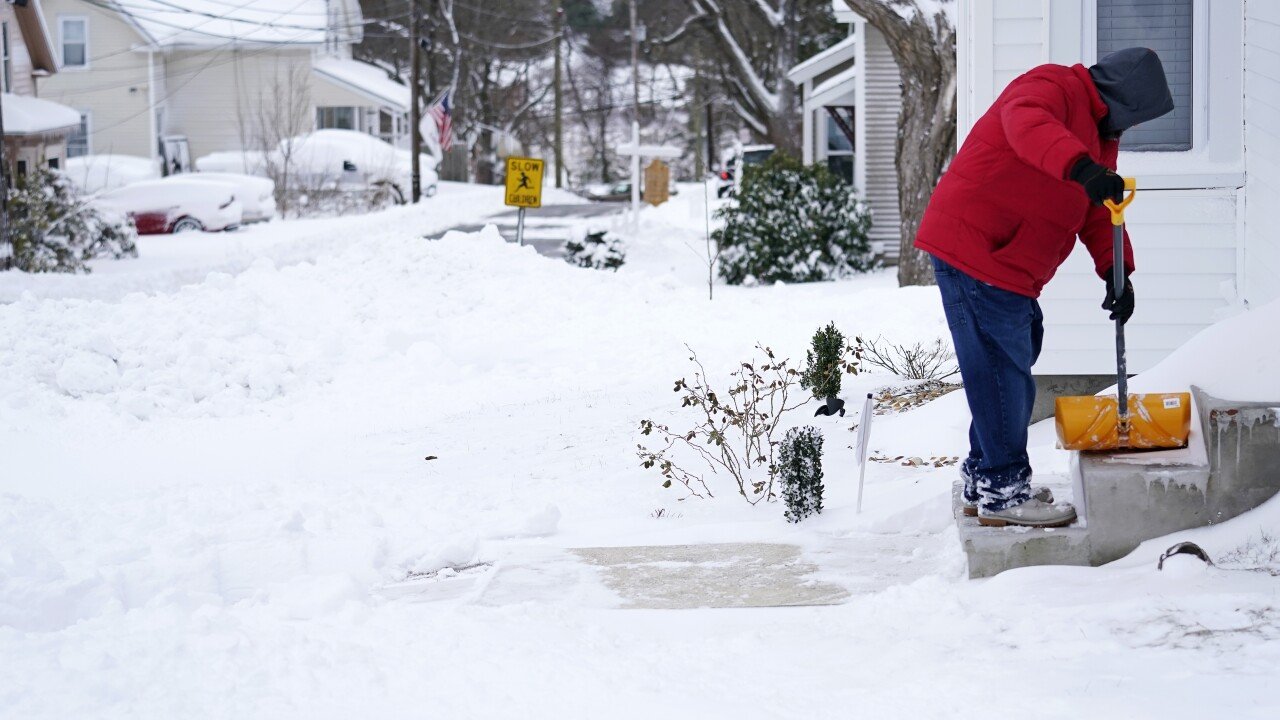A widespread deep freeze gripping much of the United States on Sunday threatened to impact dozens of states with snow and ice, plunging temperatures as far south as Florida. The severe weather system created chaos for travelers, football fans, and even voters participating in the Iowa Caucuses.
Wind chill advisories or warnings covered over 100 million Americans, with more than 44 million under a winter weather advisory. Temperatures across much of the nation were 20-40 degrees below normal. The frigid conditions were expected to reach as far south as northern Texas, with Montana and the Dakotas facing subfreezing wind chills. North Dakota was warned of “life-threatening wind chills as low as 60 below zero.”
The South Dakota Department of Public Safety issued a statement urging people to stay indoors, emphasizing that frostbite could set in within minutes in such extreme cold. As the deep freeze settled, more than 100 million Americans were impacted by wind chill advisories or warnings, and over 44 million were under a winter weather advisory.
AccuWeather forecasted a winter storm with snow and ice threatening the mid-Atlantic and New England from Monday night to Tuesday night. The storm, accompanied by a wall of arctic air, was expected to traverse the nation via the jet stream over the next few days.
AccuWeather Senior Meteorologist Matt Benz noted that this cold spell could be the “coldest and most persistent outbreak of arctic air in a couple of winters” for much of the country.
Developments:
- The Electric Reliability Council of Texas (ERCOT), responsible for the state’s power grid, assured the grid’s normal operation. However, concerns about possible outages were raised due to extreme conditions. In 2021, a winter storm left 4 million Texans without power.
- Washington, D.C., Mayor Muriel Bowser planned to activate a Cold Weather Emergency from Monday to Thursday, providing assistance to unsheltered residents with shelters, warming buses, and essentials.
- In Arlington, outside Washington, D.C., where deep freezes are rare, residents were advised to take precautions such as wrapping pipes to prevent freezing.
Snowfall and ice were expected from Texas to Tennessee, with areas potentially receiving over a foot of snow. A dangerous ice forecast in Texas and southeastern Oklahoma was anticipated to spread into several southern states, including Louisiana, Mississippi, Alabama, Georgia, and Tennessee.
Southern states, unaccustomed to such subfreezing weather, advised residents to prepare for the extreme conditions. Arkansas Gov. Sarah Huckabee Sanders declared a state of emergency in anticipation of the cold snap.
In the Northeast, Buffalo faced severe weather conditions, leading to the postponement of an NFL playoff game. A band of lake-effect snow was predicted to dump 1 to 2 feet of snow across the region, with some areas possibly receiving up to 3 feet. The National Weather Service warned of near-blizzard conditions due to winds gusting up to 50 mph.
Iowa, where the iconic political caucuses were scheduled, experienced record-low temperatures. Parts of northern Florida faced a significant temperature drop from a high near 70 degrees to the upper 40s.
Michigan battled heavy snowfall, high winds, and thundersnow over the weekend, leading to hazardous road conditions and power outages. Northern Michigan saw intense lake bands causing near-whiteout conditions.
The freezing conditions did not spare the West Coast, with almost 170,000 homes and businesses losing power in Oregon. Strong winds above 80 mph toppled trees and power lines.
The forecast for Iowa Caucuses day predicted extreme cold, possibly the coldest ever recorded. Despite the adverse weather, former President Donald Trump, a heavy favorite in the Republican Caucuses, downplayed its impact on voter enthusiasm.
Oregon faced power outages and sewage pump station issues, prompting emergency responses. Portland Mayor Ted Wheeler urged residents to stay home, emphasizing community support during the weather event.
Des Moines in Iowa experienced an exceptionally low temperature of minus 18 degrees, setting a record. With wind chill reaching minus 40, authorities warned of dangerous temperatures. Emergency services were called into action, exemplified by deputies assisting a woman giving birth in a snowstorm.
The Midwest and Great Plains braced for continued arctic air and strong winds, with temperatures expected to remain dangerously low through the early week. The political importance of Iowa in the caucuses and the extreme weather conditions added a unique dimension to the unfolding events.
Travel to Europe
Coach rental in Europe
Travel agency Paris
DMC for Europe
DMC for Paris
